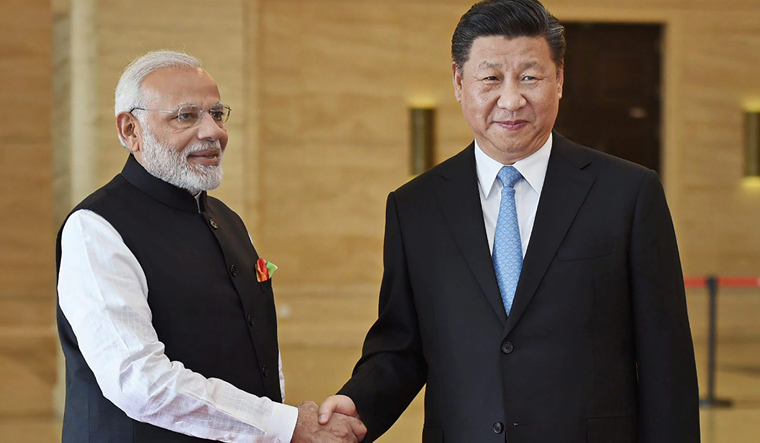The Modi-Jinping summit at Wuhan was planned not at Xiamen last September, but ironically, in Astana, just a few days before the Doklam stand-off happened. The BRICS summit took place last autumn in Xiamen, and it was the motivation for India and China to end their stand-off in Doklam so that Modi could visit China. However, earlier in the year, when the two had met on the sidelines of the SCO conference in Astana, and forged the famous Astana consensus, they had decided on this kind of an informal leader-to-leader meet, said former ambassador of India to China, and director of the Institute of Chinese Studies Ashok Kantha, while addressing a meet of the Indian Association of Foreign Affairs Correspondents.
“Wuhan took place at a time when China's world view had crystallised, but also the pushback (from other global players) to China's behaviour had also crystallised. So China was in the mood for tactical moderation. India was also keen to show some flexibility in an increasingly unpredictable international environment,'' Kantha said.
Kantha, however, said there was no shift in the structural problems. “There is still an accumulation of differences and concerns on both the sides. For instance, how do we manage the overlap in our footprints, both over land and sea. Again, regarding the Asia Pacific, our approach is divergent. China thinks it could be a co-leader, perhaps with the US, we are looking at multipolarity...In real life, I think both sides accept this is a difficult relation that needs a smart mix of cooperation and competition to handle,” he said, adding, “India was one country which China found difficult to game out.”
There is an ambiguity in the message China is sending out to the world. On the one side, it is trying to say we don't want to rule the world, not yet, at least. On the other, it continues to place missiles in the South China Sea and conduct massive maritime exercises there, he said.
He pointed out that in the recent times, the territorial dispute had assumed the significance of a “core interest'' for China. At the same time, the capability gap between China and India had increased substantially. He said India would have to maintain a policy of deterrence and balancing in its China policy.
“We have to resist and challenge China quietly, yet not accept the junior partner's role,'' he said, pointing out that there were no indications from the Chinese side for an early resolution of the boundary issues. “There has been no progress in this since 2005,'' he added.


